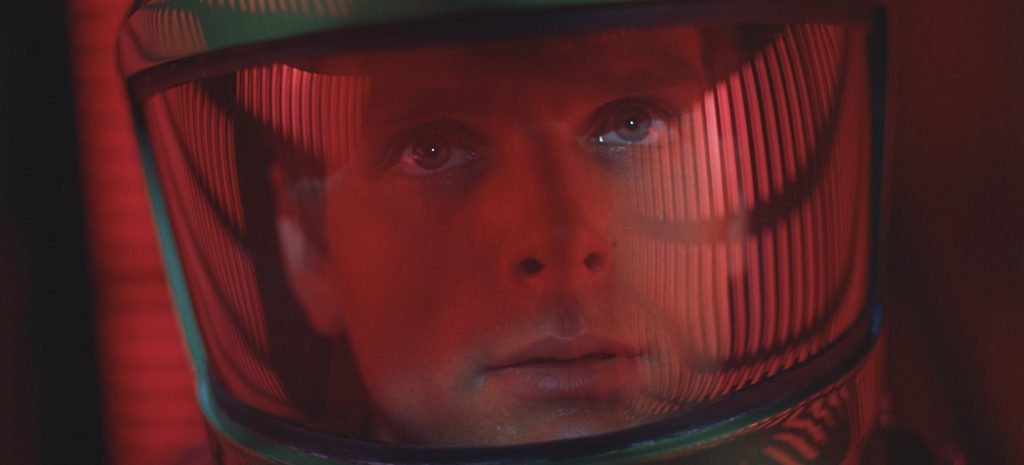
Film in the 20th century has undergone as many trends, shifts, and styles as any other artistic genre. We have seen realists, surrealists, movements of stunning drama or startling style. We have seen hundreds of brilliant directors produce thousands of brilliant films. We have seen countless moments frozen in time on the silver screen, never to be forgotten.
Everyone has his or her favorites—favorite movie, favorite star, favorite director, favorite scene. For some it’s Citizen Kane, for others it’s Caddyshack. Some love John Barrymore, others John Belushi. No one is right and no one is wrong.
When it comes to creating lists of the best movies or scenes, there is a certain pointlessness to it. People will agree with you for one or two movies, but never twenty. Still, there is something distinctly satisfying and intriguing in creating a “best films of all time” list. The hard thing is finding a balance between personal favorites and worldwide importance. Such is the dilemma I am faced with. If I were to list merely my 20 favorite movies of all time, Samurai and Coen brothers films would dominate the list. If I were to make a list solely based on importance, I would end up with a list like the AFI’s 100 list—boring and predictable.
So I will try to find a happy medium. Not many of you will completely agree with this list and some of you may not of even heard of a few of the choices, but it is my desire to represent both my personal tastes and what I think defines cinema. The movies on this list are not only ones that I cherish, they are also the exemplary gems of their genre,movies that manage to fully capitalize on the advantages and capabilities of cinema. I know I am walking on thin ice, so please bear with me and enjoy.
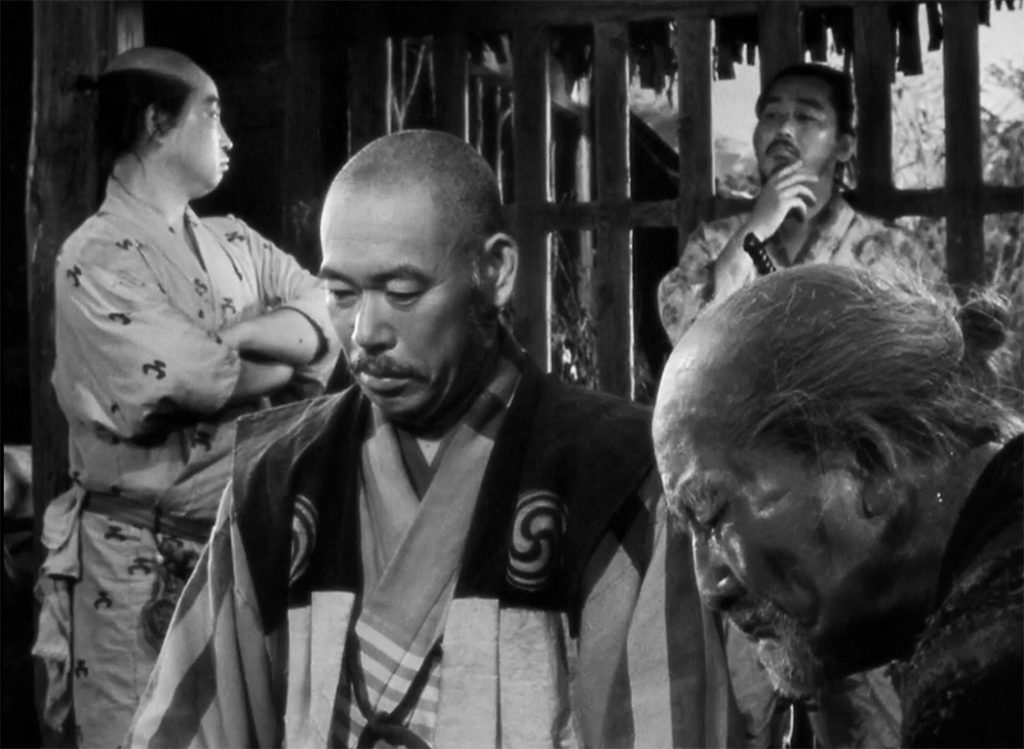
1. Best Movie of the Century: The Seven Samurai
Released in 1954, this masterpiece by Japan’s greatest director, Akira Kurosawa, has never gotten the respect it truly deserves. Telling the epic story of a village that hires seven samurai to protect them from raiding bandits, the movie represents what cinema can do: that is, bind multiple disciplines of art into one breathtaking package. The Seven Samurai quite simply has it all: brilliant and controlled direction by Kurosawa, beautiful cinematography, an exceptional script, and some of the best acting ever.
The Seven Samurai cannot be classified in any specific genre. It is more than that—it is one of the true classics. Like The Odyssey or The Iliad, The Seven Samurai is universally appealing because it deals with the fundamental issues of love, honor, respect, and destiny.
There are many scenes in the movie that are truly unforgettable. The samurai’s first appearance, the raid on the bandits’ camp, Toshiro Mifune’s passionate moral speech, and the final battle sequence—heartbreaking, breathtaking, and poignant all at once. It is a sad truth that many people have not seen this movie and some may have never heard of it, but like all great pieces of art, this one will never disappear. It will always be here waiting for us to discover its greatness again and again.
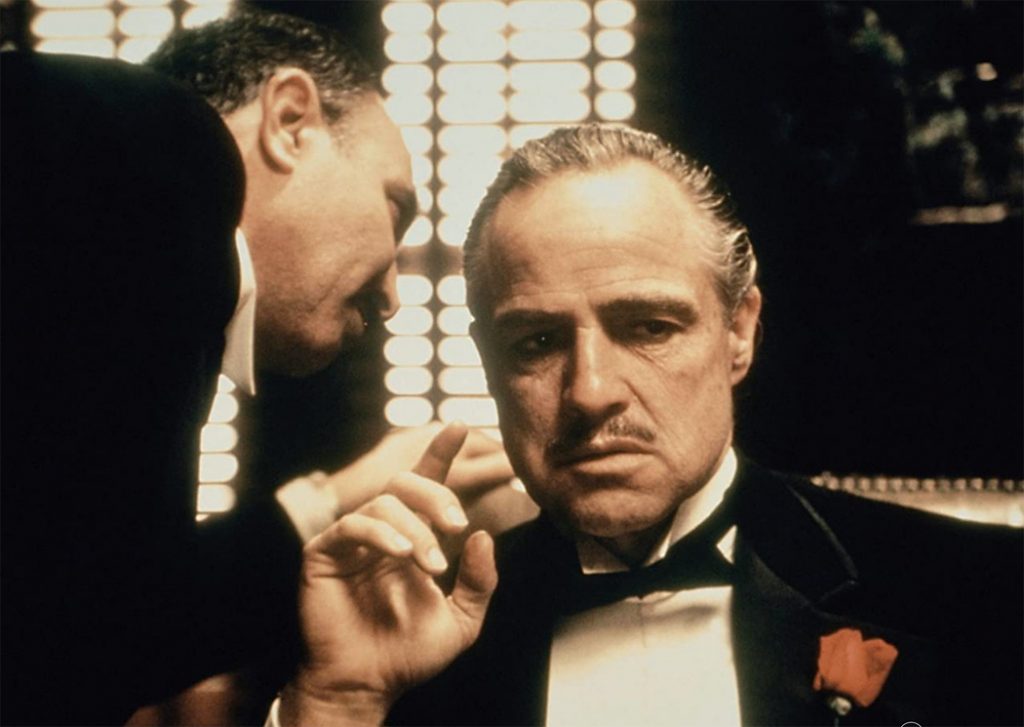
2. The Godfather
The Western equivalent to The Seven Samurai, The Godfather has captured the hearts of audiences and critics alike since its release in 1972. The story of the Corleone family, The Godfather took the mobster genre and elevated it to a place of near-mythic romanticism. The brilliance of The Godfather, though, is not in its intoxicating seductiveness (name another movie that you can walk in at any scene and be mesmerized by) but in the way it manages to shock us while drawing us in all the while.
This is what separates The Godfather from any other epic ever made: it manages to be a realistic telling of human nature and its dark side and be one of the most entertaining movies ever made. No movie is richer than The Godfather, from the stunningly deep visuals to Marlon Brando’s unforgettable slur. It’s the kind of movie that you always remember the first time you saw it.
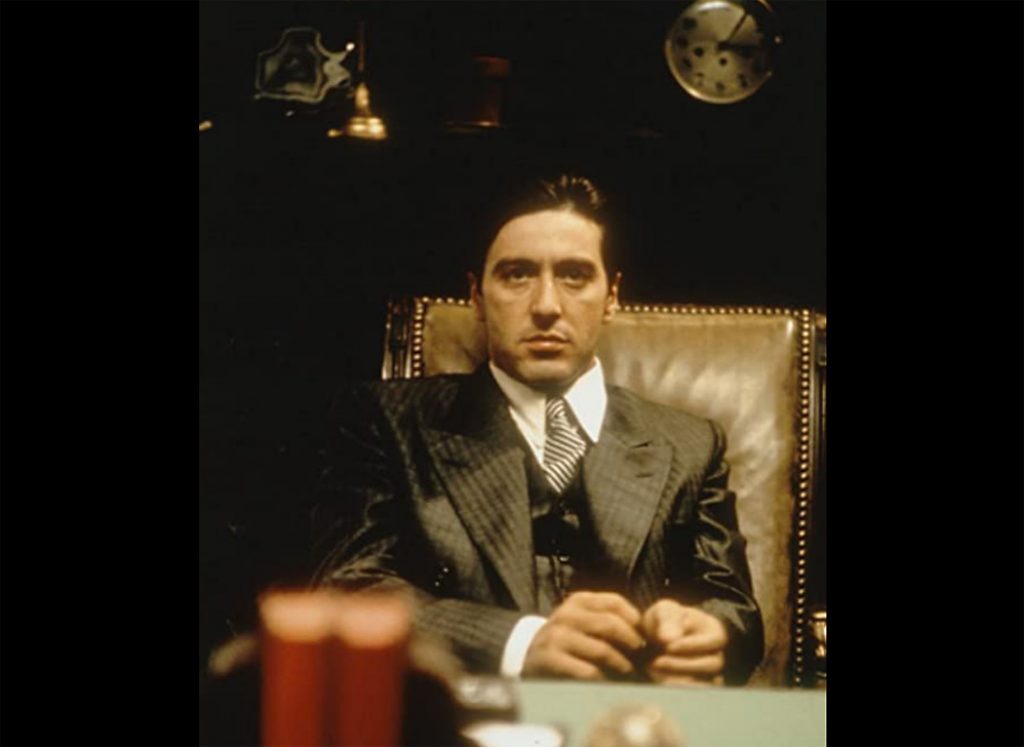
Time after time, The Godfather holds up. Maybe it is Al Pacino’s groundbreaking and still best performance. Maybe it is Mario Puzo and Francis Ford Coppola’s remarkable script, or maybe it is just that The Godfather taps into the American Dream better than almost any other movie. The Godfather shows how our hopes and desires play out in the real world with an unparalleled immediacy, at once intoxicating and bracing. It’s truly an unforgettable piece.
3. Jean de Florette and Manon of the Spring
Another pair of names that many will not recognize, the French films Jean de Florette and Manon of the Spring tell a truly karmic tale with more grace and poignancy than almost any other ever made. The story—of a kind hunchback and his beautiful family who go to the wine country of France to start a rabbit farm, only to be thwarted by his greedy neighbors—packs an almost unmatched emotional wallop.
But what makes these movies so effective is not just the story but the way it is told. No character is absolutely evil, and thus it does not allow us to take sides. The acting is some of the subtlest and best ever. Gerard Depardieu delivers the performance of his career alongside the brilliant French legend Yves Montand. In Manon the beautiful Emmanuel Beart sparkles, while Daniel Auteuil plays his despair to perfection. Directed by Claude Berri, the movie has a heartbreaking beauty, not unlike Days of Heaven or La Strada. These movies cast you into a dream, create a whole world into which you can’t help but fall. Like The Godfather, Blade Runner, and even Raising Arizona, Jean de Florette and Manon of The Spring are great movies because they work on the level of art and entertainment. Watch them at their face value and these movies are simply great dramas. Look deeper and you’ll see a moral fable as deep as anything Chekov ever wrote.
4. The Manchurian Candidate
John Frankenheimer’s weird, wild, funny, frightening, and blasphemously entertaining thriller is so modern that 37 years after its release, it still is a blast of fresh air. Major Bennett Marco (Frank Sinatra), just returned from the Korean War, has nothing but praise for his comrade and Congressional Medal of Honor winner Raymond Shaw (Lawrence Harvey), or so it seems. As the plot unravels, Marco becomes aware that both he and Raymond were subject to severe brainwashing during the war and that Raymond’s nagging mother (Angela Lansbury) is a lot more suspicious than she at first seems. Brilliantly constructed, the movie is paced like a racehorse and miraculously manages to combine suspense, comedy, and meaning. Like all great movies, the film stands up under multiple viewings. Watch it the first time and you’ll be blown away by the ending. Watch it a second time and you’ll be weirded out by the recurring Lincoln motif.
Sinatra is great, while Lawrence Harvey and Angela Lansbury nearly steal the show with their hilarious and chilling relationship. Beautifully photographed and with one of the most searing scripts ever, the movie beats out even the best of Oliver Stone’s work.
How powerful is this movie? Shortly after its release in 1962, Kennedy was assassinated, and The Manchurian Candidate was shelved for 25 years. Sometimes America isn’t prepared for such revelatory forms of art. This was one of those times.
5. Schindler’s List
With this heartbreaking, inspiring, and cathartically affective film, Steven Spielberg showed the world that he was more than just smoke and mirrors, that he could create a meaningful and powerful movie that stands beside any of the greats. Schindler’s List, the story of a man who is transformed through the act of saving 1300 Jews, is a crowning achievement, not just because it really shows what happened in the Holocaust but because it manages to find inspiration and heroism amidst the greatest tragedy of all time.
Over three hours long, it’s the longest film Spielberg has ever made, and yet somehow it feels surprisingly brief. Outstanding editing and direction, alongside great music and writing, contribute to this, making it one of the few epics that’s not even mildly boring.
The acting is superb. Liam Neeson gave the performance of his career, while Ralph Fiennes and Ben Kingsley are unforgettable in their supporting roles.
Schindler’s List makes the top 20 mainly because there had never been a movie like it. No movie before had even come close to revealing the dark heart of the Holocaust. Spielberg’s achievement is that he manages to show tragedy and triumph, horror and heroism. In one fell swoop, he crafted a movie that understands life better than almost any other.
6. Raising Arizona
Many of you may raise your eyebrows at this choice, dismissing it as fluff. But in truth Raising Arizona is the best comedy ever made: a fast-paced, hilarious Southern tale that’s so entertaining, it takes a few viewings to realize how smart it is. The story of an Arizona couple that steal a baby because they’re unable to have one of their own may seem simple, or even dumb, but if you pay attention to the camera work, acting, and especially script, you’ll realize this is no ordinary comedy. What separates the movie from the norm is the amount of detail it has. Watch it again and there are lines that you never even heard the first time.
Every actor in the movie is pitch perfect, from Nicolas Cage’s blundering yet lovable hero to John Goodman’s pompous loser. The movie has that magical quality where every element of the film has come together. It was made by the Coen brothers, who for the last 15 years have created some of the most original and brilliant films around.
There’s something truly special about this movie—no other movie has better replay value. No matter how many times I watch it, I always feel humor and sadness, grace and terror, normality and oddity intertwined. In other words, I experience the Coen brothers’ view of life with perfect lucidity. If that’s not a great film, then I don’t know what is.
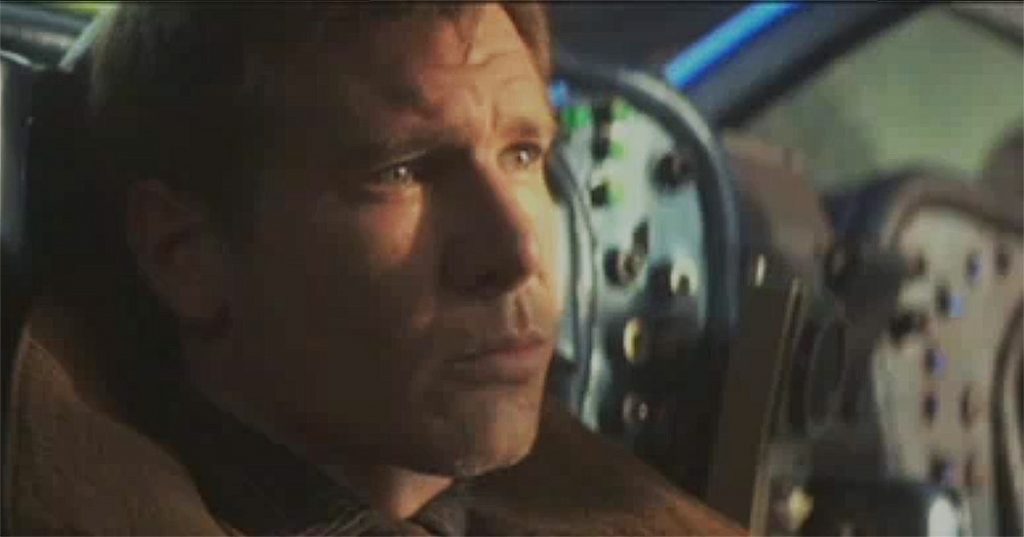
7. Blade Runner
The masses love Star Wars, while movie snobs go ape over 2001, but the greatest science fiction film of all time is none other than the lyrical, poetic, and startlingly visceral masterpiece Blade Runner. Released in 1982, the movie was initially a box ofice failure, but it soon became apparent that it has influenced every sci-fi movie made since. Directed by Ridley Scott, the movie is a triumph of style, one that still dazzles today. Artfully filmed with a haunting score by Vangelis, the film is real enough to scare us and inventive enough to enthrall us.
This is the story of a man who hunts cyborgs, robots that look and act human. There is more than just a stylish story here, though. The movie’s themes are still relevant and thought provoking today. Harrison Ford took an enormous risk with his portrayal of Deckard, the sad and distant Blade Runner who turns to alcohol to bury his pains. Sean Young is also good as Deckard’s cyborg love interest. Nothing is clichéd or foolish in this movie—even the climactic battle between Deckard and the superhuman cyborg Roy (Rutger Hauer) ends in an unexpectedly touching monologue.
The movie is not Hollywood—it is difficult, non-linear, and dark. It is also life affirming, revelatory, and uplifting. Great movies are the ones that you can’t pin down, the ones that are too big for their genre. To say that Blade Runner is simply a sci-fi movie is like saying that Citizen Kane is about a boy and his sled.
8. Touch of Evil
Not only the best film Orson Welles ever made (and, yes, I am remembering Citizen Kane) but the best film noir ever, Touch of Evil is the tale of an honest Mexican cop (Charlton Heston) who gets involved with a corrupt sheriff (Orson Welles) in a sleazy border town. The movie would be straight-up pulp if it weren’t for the remarkable talent Welles brings to the picture. Brilliantly photographed, the movie smolders like an ember, creating images that are both beautiful and repellent.
Made in 1958, the film is remarkably intense and fast paced, and it is obvious that directors like David Lynch, Brian De Palma, and Oliver Stone were heavily influenced by it. Charlton Heston never gave a better performance in his career. As Vargas he’s trying so hard to do the right thing that he ends up almost losing his humanity. Welles matches him all the way with his astounding and undeniably striking rendition of Hank Quinlan. Fat and sloppy, Hank is the epitome of evil, now burnt out by years of wear.
Touch of Evil has enough style for ten movies but its brilliance lies on a deeper level. The film touches on the themes of lost innocence, hidden corruption, and the dark side of man. But the most interesting thing is how Hank Quinlan is a reflection of Welles’ own life. Whether or not he intended this, it still remains one of the riskiest moves an actor has ever made.
The movie is a perfect machine, from the stunning opening sequence (believe the hype, it is the best ever filmed) to the blistering finale, Touch of Evil has more fire, intelligence, and heart than almost any film ever made.
9. Raiders of The Lost Ark
The perfect action movie, Steven Spielberg’s Raiders of the Lost Ark is one of those pop masterpieces that transcends its superficiality. A collection of Sunday serials and ’40s pulp comic books, the movie works because it knows exactly what it wants to be and succeeds at this brilliantly.
Everyone knows the story of Indiana Jones, the rough and tumble archeologist who always manages to escape the bad guys and booby traps, steal the prize, and get the girl. There’s nothing new in this formula, but in the way director Spielberg, producer George Lucas, and screenwriter Lawrence Kasdan manage to simultaneously make the story believable and fanciful, Raiders always walks the line between reality and our imaginations.
No other action movie can thrill again and again like this one. There are so many breathtaking scenes of action and stunt work that the movie almost feels like a workout. Who can forget the great opening, the gunfight in Tibet, the car chase, or Indy’s face-off with the man with the scimitar? Raiders creates a vivid and lucid world for the viewers, drawing them in through the movie’s style and grace.
How seductive is this movie? After seeing the trilogy on video when I was seven, I spent the next six years convinced I wanted to be an archeologist. Raiders doesn’t make any groundbreaking meditations on human life—it celebrates it, showing us who we are and what we love. You can’t ask for much more than that.
10. Strangers on a Train
There are a lot of great Hitchcock movies. Who can forget the crop-dusting scene in North by Northwest, the bell tower in Vertigo, the view in Rear Window, or Norman Bates’ mother in Psycho? But his best, the one that shows his genius in its most apparent and tantalizing way, is perhaps one of his lesser-known masterpieces. Strangers on A Train, released in 1951, is Hitch’s most brilliant set-up.
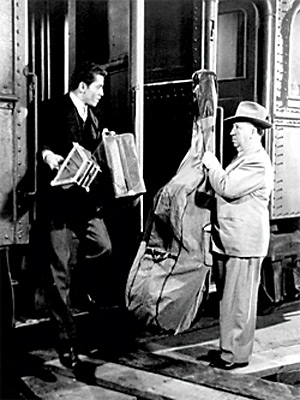
In one of his trademark cameos, Hitchcock boards the train after Farley Granger’s character exits. (Wikipedia)
Two strangers meet while traveling, both hating someone close to them. One of the men, Bruno, brilliantly played by Robert Walker, suggests that they kill each other’s enemies, thus eliminating the evidence. The other man laughs it off, but when it actually happens he’s in a sticky situation: not only is his wife dead, but now Bruno expects him to return the favor.
One of great things about the movie is how Hitchcock uses moral ambiguity as a device to heighten the suspense. The hero and the villain shift many times, until you find yourself not knowing whom to root for. Unlike Vertigo, which, although brilliant, is flawed and sometimes inaccessible, Strangers on a Train is one of those rare movies that can seriously be called perfect. There is literally no frame that needs to be changed, and Hitch’s control over the movie is so assured that you can’t help but be swept up into it. Add stunning acting, sharp photography, and a terrific script and you have, bar none, the best thriller ever.
11. The Graduate
One of the definitive ’60s movies, The Graduate makes this list because it is still a clear and honest meditation on the difficulties of youth. The story of a recent graduate facing several dilemmas (he doesn’t want to do anything, he’s having an affair with the mother of the girl he loves), the movie has an ethereal edge that makes it all the more memorable.
Dustin Hoffman gave a groundbreaking performance as the title character. As Ben he’s apathetic yet compassionate, spacey yet appealing. Anne Bancroft is also excellent—as Mrs. Robinson, she makes her character both scary and sexy.
Directed by Mike Nichols, the movie has the artistic intelligence of a foreign film without the pretension. The Graduate is filled with great scenes: Ben in the pool with the scuba suit, his meeting with Mrs. Robinson at the hotel, the plastics monologue, and the great silent finale. All of these make up the ambience of the movie, one of defiant absurdity and then fresh irony in the face of gross materialism. The ’60s may have ended but The Graduate still speaks loud and clear.
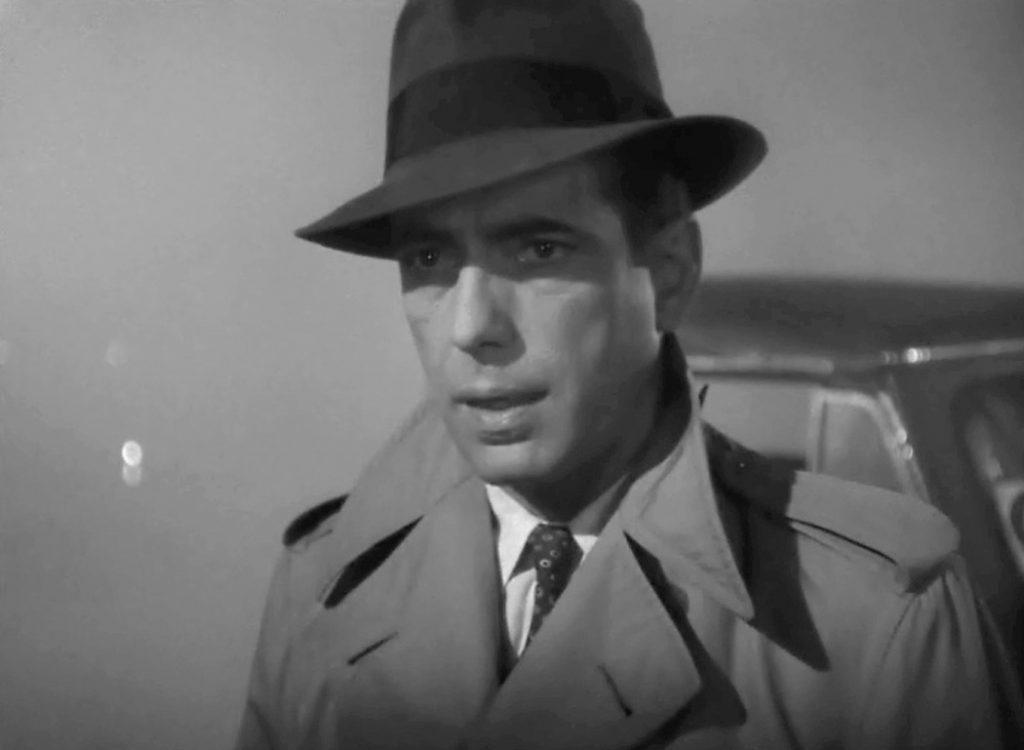
12. Casablanca
It may seem ordinary and boring to choose Casablanca—everyone does. But despite its cornball premise, this one gets me every time, and no other movie succeeds at being as unabashedly romantic as this. The story of Casablanca is familiar: Rick (Humphrey Bogart), the lonely, cynical nightclub owner, gets one last chance for love and redemption when his past flame, Elsa (Ingrid Bergman), walks into his bar.
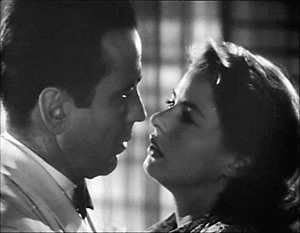
The truth is, it’s not really the story that makes this a great film, but the elements and details of the story that make it so memorable. Everything is in place, from the design of Rick’s bar, to the monkey on Sydney Greenfield’s shoulder. Directed by Michael Curtiz, who made such classics as The Adventures of Robin Hood and The Wizard of Oz, Casablanca has a light and delectable grace that’s almost unseen in movies today. Like Laura, the movie casts a spell that magically works again and again. The late great Howard Hawks once said that a good movie is five good scenes and no bad ones. Casablanca more than fulfills that requirement.
13. Diva
Diva is not only one of the best French films in the last 25 years, but the most exiting one ever. Made in 1980 by the youthful upstart Jean Jacques Beneix, the movie has the vibrant energy of a young Welles or Scorsese. The story of an opera junkie whose bootleg tape of a diva performing gets swapped with an incriminating tape revealing the existence of a prostitution ring, the movie crackles and burns with more excitement and suspense than ten American action movies.
Stunningly filmed, the movie is a tour de force of style, obviously influencing directors like Luc Besson and Quentin Tarantino. All the best action movies have a great car chase, and this one has perhaps the best ever. Twisting through the curvy streets of Paris, the scene takes on an unparalleled claustrophobia that heightens the suspense to a point of surprising tension.
The movie is beautifully constructed, juxtaposing scenes of intensity with moments of startling serenity. Like Raiders of the Lost Ark, this movie is not particularly deep, but is a stunning example of what cinema can be in the right hands. If film excels in visuals and style, Diva is its ace in the hole.
14. Amadeus
One of the best epic movies ever made, Amadeus is an outstanding combination of top-notch sets, direction, screenplay, and acting. Milos Forman’s rendition of Peter Shaffer’s Amadeus is a true literary and visual masterpiece. Telling the story of Salieri (a brilliant F. Murray Abraham), the composer no one ever heard of, and how contempt for his contemporary Mozart may have led him to murder, the movie is not just a fascinating concept, it’s a searing study of a man who refused the cards he was dealt.
As Mozart, Tom Hulce plays his role to perfection, rendering him as a sort of idiot savant. Hulce is so convincing that his Mozart feels like the truth. Forman also has a wonderful understanding of Mozart’s music, capturing its divinity and the irony of who it came from. F. Murray Abraham greatly deserved his Oscar for his stunning portrayal of Salieri. Perpetually dissatisfied, yet smart enough to realize Mozart’s greatness, Salieri to this day remains one of the more complex characters ever seen on the screen.
Beautifully shot and exquisitely paced, the movie, like Lawrence of Arabia, is an epic with brains to match its beauty.
15. Laura
Laura is a true classic, not in the sense that it is well made or has “good direction” but in the way it captures the glamour and grace of ’40s-era film. A combination of film noir and dapper love story, Laura remains a satisfying and enticing gem after 55 years. Laura is a beautiful and intelligent socialite, who has presumably been murdered. Detective Mark Mcphereson approaches the case indifferently, but eventually he begins to fall in love with Laura’s ghost, who she was and what she represented.
The movie has as many twists and turns as any Hitchcock movie. Beautifully filmed by the great director Otto Preminger, the movie takes on an air of style and seduction, of darkness and light. The cast is perfect: Gene Tierney is stunning as Laura, using both her looks and her wits to attract; Dana Andrews, although never a good actor, is perfectly wooden and a good balance to the flamboyant performances by Clifton Webb and Vincent Price.
There are times when I watch a movie and am buzzed, when I realize I have seen a perfect combination of commerce and art, when the movie’s vision sweeps me away. This is why I love movies. It doesn’t happen much, but Laura was one of the times it did.
16. Chinatown
The only truly great movie Roman Polanski ever made, this gritty noir still has enough power to remain a shocking and riveting experience. A tantalizingly complex tale of corruption in postwar L.A., Chinatown has perhaps more ominous moments than any other in history.
Filmed mainly in the early morning, Chinatown takes on a quietly melancholy ambience, like an old faded postcard. Jack Nicholson made a big career leap with his portrayal of Jake Gittes, a hardened private eye. Manic, funny, and intelligent, Nicholson makes Gittes devoid of all clichés. The rest of the cast also shines, with Faye Dunaway as the female love interest with a dark secret and John Huston as her evil father.
Robert Towne wrote the dense and near-perfect screenplay, which to this day remains one of the best ever.
Chinatown, like Bonnie and Clyde or Taxi Driver, is so effective because it conveys an image of America not seen before. With movies like these, the curtains were pulled back on the so-called perfect American Dream. What we saw wasn’t pretty, but you couldn’t then and still can’t look away.
17. The 400 Blows
With The 400 Blows, Francois Truffaut single-handedly started the French new wave. That would be achievement enough, but the fact that The 400 Blows is still the best of that genre and remains the most honest and poignant tale of childhood ever told gives it a place on this list. Almost plotless, the movie follows a young boy and his experiences in life. We see him fight with his parents, shoplift, sent to juvenile detention, and escape, and all the while there is only a feeling of empathy and compassion—we can all relate to this boy.
The greatness of the movie is the way it makes the boy’s seemingly existential existence seem meaningful. Truffaut may have been aware of the insignificance of most things, but his films always have an awareness of something greater, a sense of hope and redemption that Godard’s work often lacks.
Tastefully directed with remarkable photography, The 400 Blows is like Paris, Texas in the sense that it doesn’t really tell a story—it conveys an experience and shows us the emotional possibilities opened up by cinema. The 400 Blows will have you shaking your head in awe.
18. Annie Hall
Annie Hall, the best Woody Allen movie is also the best romantic comedy of all time. This funny, smart, charming, and always believable story of two people trying to fall in love in modern times is the best kind of comedy—it makes you laugh and think.
Brilliantly constructed and written, Allen takes the formality out of cinema and renders the movie as a sequence of real life. In Annie Hall the spectator is invited to join in the fun. Never again in his career would Allen have the comic timing he has in this one, and few films can match its balance of comedy, romance, and drama.
As the title character, Diane Keaton started her career and a new trend with her ever-ditzy, always hip, and surprisingly independent Annie.
If The Graduate was a clear and honest portrait of the ’60s, then Annie Hall is the movie that defines the ’70s, showing the angst, insecurities, and hope everyone felt at that time. Great under repeat viewings, Annie Hall remains one of the only comedies that has humor and honesty.
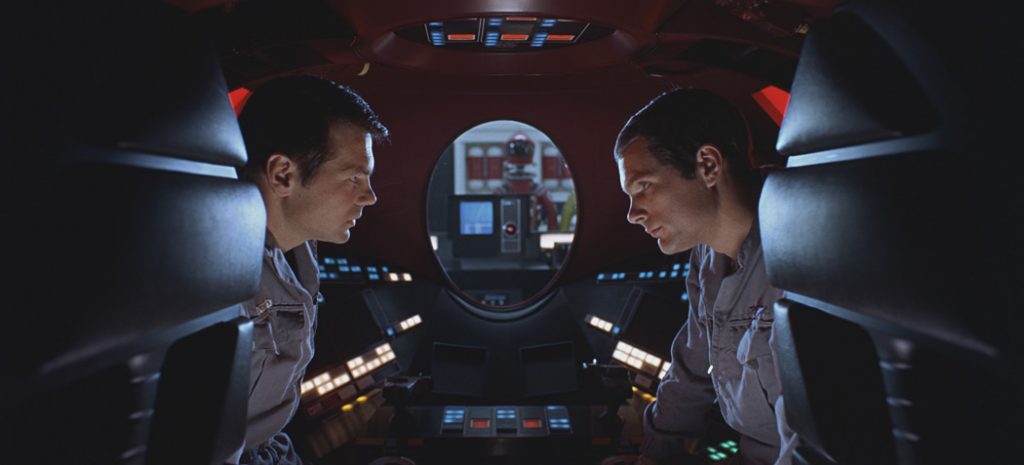
19. 2001: A Space Odyssey
The best film Kubrick ever made was the one that managed to be his most distant as well as his most feeling. In 2001 he took on the whole scope of human evolution and tried to find answers to such perplexing questions as where did we come from and where are we going.
Starting with a wordless segment that shows the evolution of apes, 2001 takes a removed and observatory perspective throughout the whole film. Thus the space sequences are filmed with a chilling precision. As we watch them to the chords of classical music, it becomes apparent that Kubrick wanted himself and the audience to take on the role of god in the picture.
Almost a silent film, the movie relies on its visuals, editing, and scene construction for its impact. All of these, of course, are flawless and Kubrick’s obsessive attention to detail is most evident in this film. Daringly poetic and rebelliously non-linear, the movie may not carry the startling intensity Blade Runner has, but there’s no denying that through its transcendental style it provides many revelations.
20. Paris, Texas
Wim Wenders’ magical and melancholy meditation on America is about as good as slow-paced art films can get. Ever beautiful and always ominous, the movie never feels boring. The tale of a drifter and the life he left behind, Paris, Texas is about many things: loneliness, rejection, and the feeling of being foreign to everyone, including yourself.
As the drifter, Harry Dean Stanton is amazing, acting with his face and his eyes, conveying his emotion without words. Natasja Kinski is heartbreaking as Stanton’s wife, while Hunter Carson delivers the best child performance ever.
It is truly remarkable how Wenders, adapting a Sam Shepard play, manages to understand and film our culture so well. Paris, Texas shows the broken communication and isolation that come with our land of opportunity. With amazing cinematography, editing, and especially music, Paris, Texas is a haunting and unshakable experience, one that shows the lyricism and emotion of film better than most.
